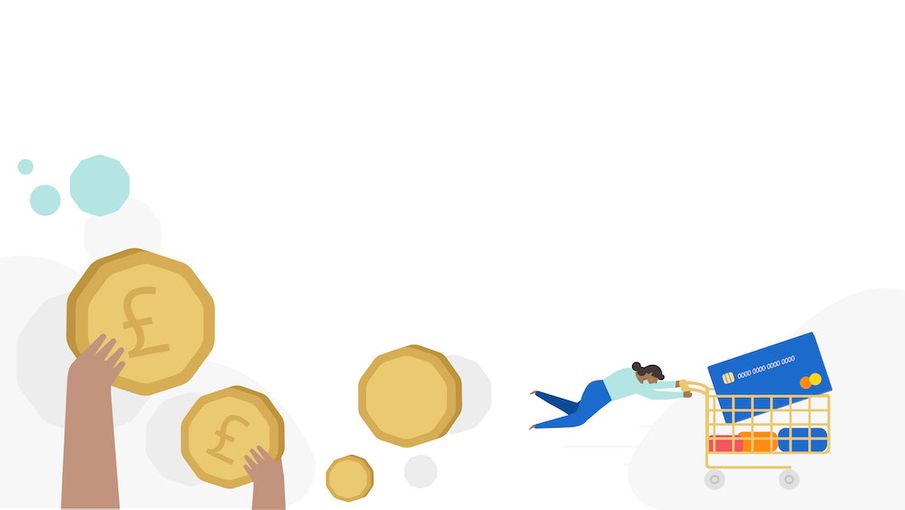Compulsive spending can lead to psychological problems, relationship difficulties, and serious debt. Here are some strategies to help control your urge to splurge
Addiction is defined as a compulsive engagement in rewarding behaviour, despite adverse consequences. A bit of retail therapy might not be the first thing that springs to mind when you hear this, but thanks to apps, instant pay, and targeted advertising, shopping is easier than ever, and most of us occasionally make impulse buys – especially during the sales. Often, we regret it when we get home, realising we’ve wasted money on something we don’t need. But for an addict, shopping can be used to avoid feelings of depression, anxiety, low self-esteem, or boredom.
The act of buying something, in a shop or online, produces a surge of adrenaline and dopamine, making it feel exciting and pleasurable. It can also relieve anxiety and stress, but only temporarily. Soon after, the shopping addict is likely to experience guilt and shame, leading to further low mood and anxiety. As with all addictions, it’s usually a secretive activity.There will be a progressive loss of control, and increasing compulsive buying, even though the addict knows it is causing them problems.
The adverse consequences are not limited to psychological and emotional difficulty, but can lead to relationship problems, and serious debt, as the addict continues to buy things that they don’t need, on credit. Because of the instant gratification it brings, making impulse purchases masks the true cause of the anxiety, and may prevent the addict from seeking more long-term solutions or treatment for their anxiety.

Because so few people with a compulsive overspending problem report it or seek help, it’s very hard to know exactly how many people experience this. Some studies, however, estimate that between 30% and 50% of Europeans suffer from at least mild to moderate lack of control when spending.
Whether you feel you have a serious problem with shopping addiction, or whether you would just like to resist occasional impulse purchases, there are strategies to help you break that pattern.
Out and about
Give yourself time
If you’re tempted to make an impulse purchase, tell yourself that you’ll wait a couple of days and if you still really want it and can afford it, then you’ll go back to get it.
Make a list
Even going to the supermarket for the weekly food shop can lead to overspending, so do the old-fashioned thing and make a shopping list before you go – and stick to it. There is also something quite satisfying about getting to cross things out on your list!
Just take cash
To avoid temptation when you are out shopping, just take the amount of cash you need. Leave cards at home. That way you can’t make an impulse buy.
Cognitive behavioural therapy can really help to find alternative, more positive ways of managing anxiety and low self-esteem
Online shopping
It’s so easy to scroll through eBay or ASOS every evening, and many people find it extremely hard to break the pattern, in spite of escalating debts. Online sites exacerbate the problem by constantly coming up with suggestions for items you might also like, and it’s all too easy to click on them. So how can you get out of such addictive routines?
Cold turkey
The fastest way to treat any addiction is to go cold turkey, which means abruptly stopping completely. To do this you would need to delete those sites from your devices, and seek other ways to control the anxiety.
Gradual withdrawal
If that’s too difficult, it can be done more gradually. You could limit the time you spend browsing. For example, stick to 30 minutes at a set time every day, then browse every alternate day, gradually reducing it each week. Do something constructive with the time you’d normally spend online (exercise, cooking, writing, etc).
Distraction
If you can’t resist, then before you hit buy, get up and do something that distracts you for 10 minutes. Most cravings subside in that time. Or put it in your basket and resolve not to check out until the next day. You will probably find that your urge to splurge goes.
Have a positive plan
Add up the amount you’ve spent shopping online over the past month. Work out what this amounts to in a year and make a goal to save the money instead, to put it towards something you really want (a new car, dancing lessons, a deposit for a house, a holiday).
Help and support
If you’ve tried all of this and still feel you have a problem, contact Citizens Advice for support with debt management. Cognitive behavioural therapy (CBT) can really help to find alternative, more positive ways of managing anxiety and low self-esteem as well.
For more information on Cognitive Behavioural Therapy visit counselling-directory.org.uk


Comments